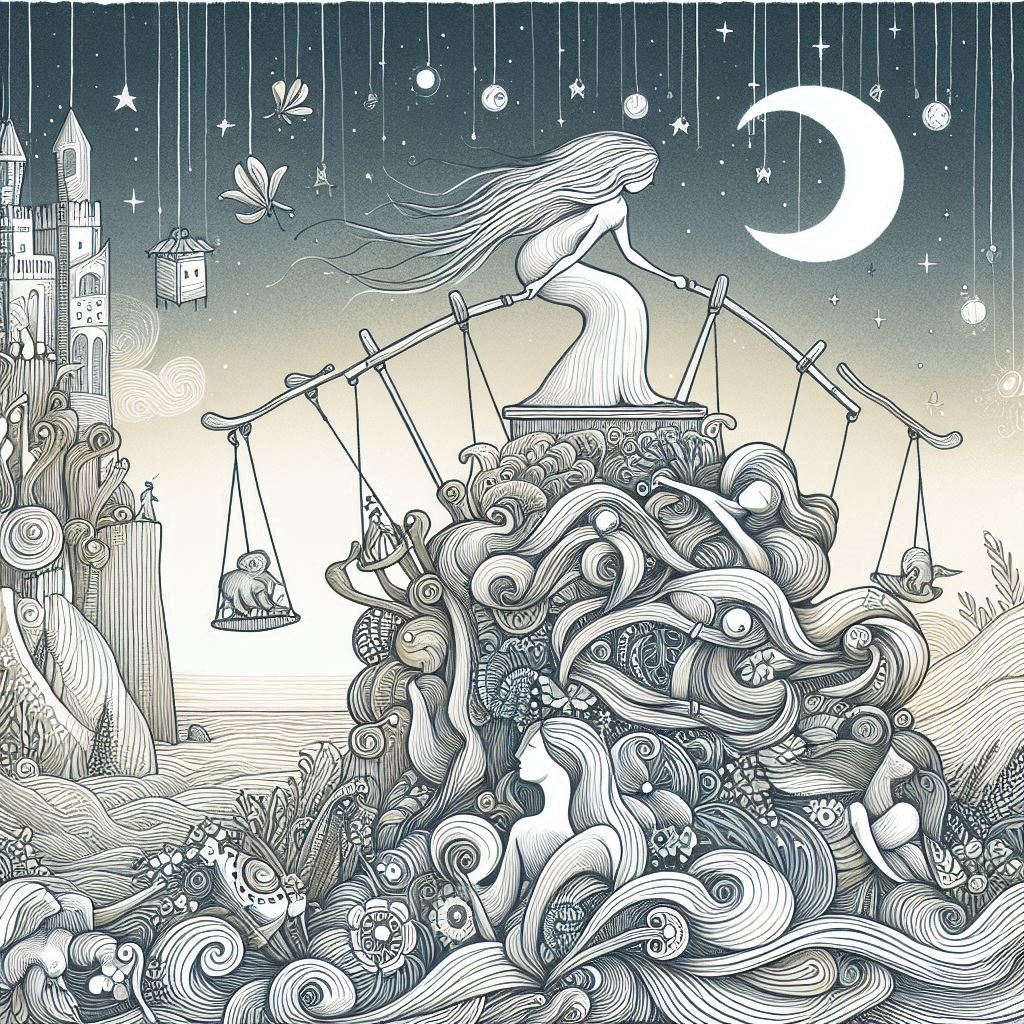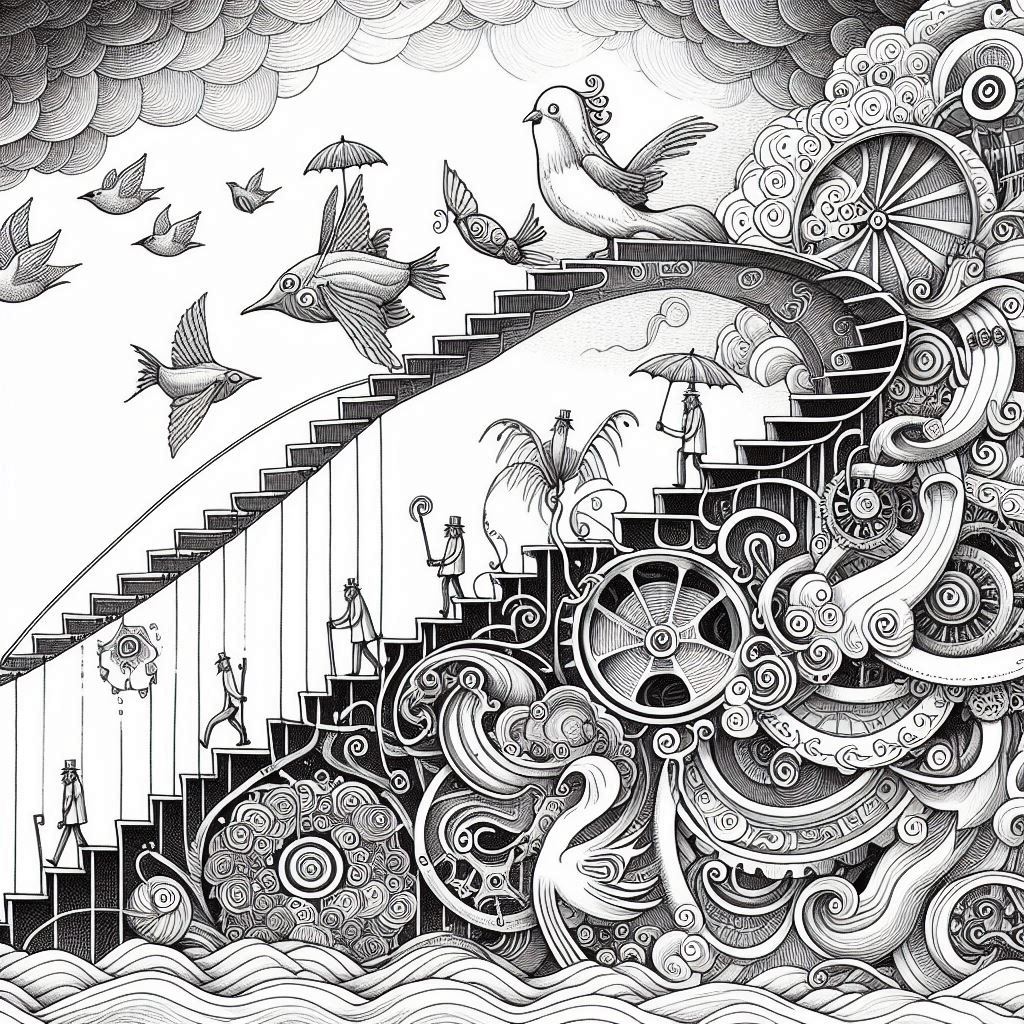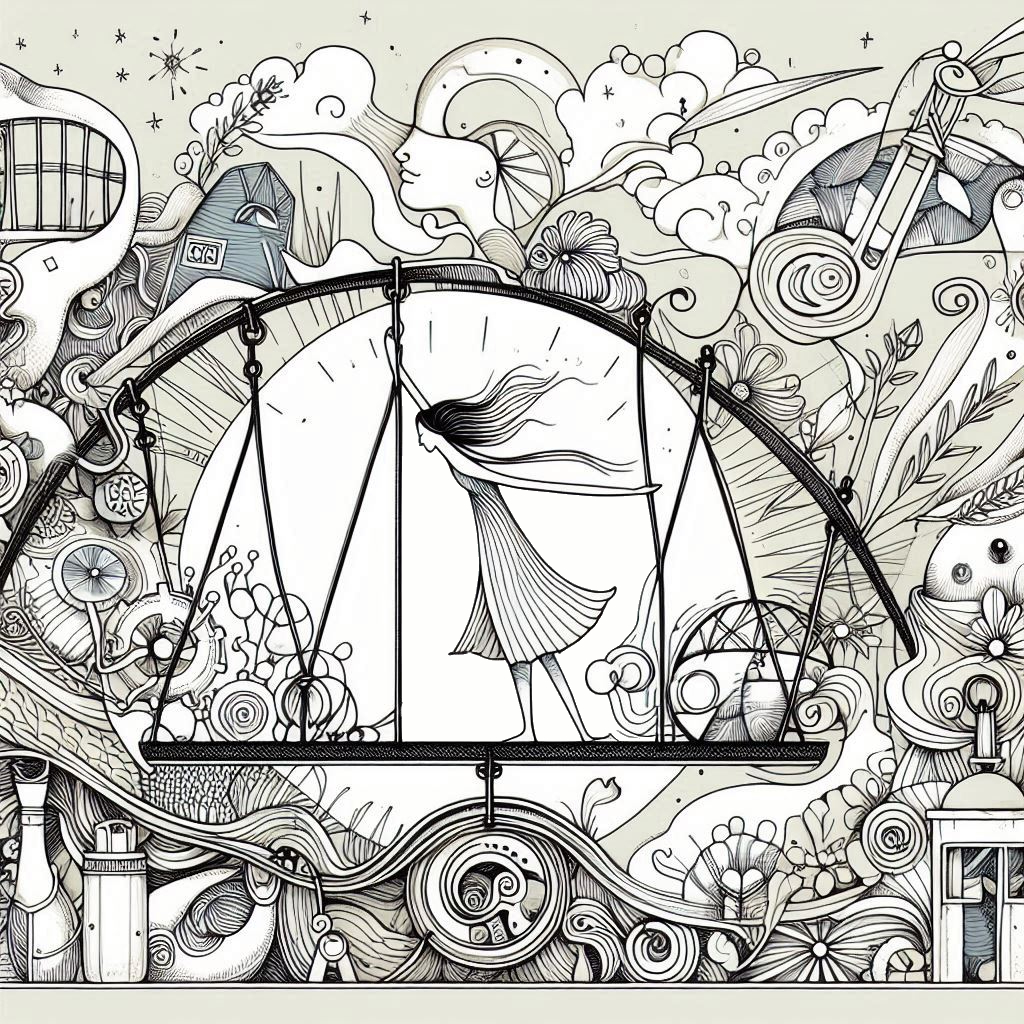This is, because that is.
This is not, because that is not.
This ceases to be, because that ceases to be. 1
In between breaths, the world transforms. A finger hover over the touchscreen, a decision on the edge of consciousness and in that one breath moment - a decision pivots.
That moment, fleeting yet, is the anchor upon which our lives balances on. Is this the weight of progress that meets the resilience of the human experience?
| Anchor of Life |
|---|
 |
We stand at the precipice of a new era, one that our ancestors could scarcely have imagined. Or could they? The 21st century has ushered in a period of unprecedented technological advancement and societal change. Unprecedented - is the word. Moore's Law, which predicted the doubling of computing power every two years now seem quaint in the face of quantum computing and artificial general intelligence 2. The human genome, once a mystery, now lies open before us, promising personalized medicine and raising questions about the very nature of life itself.
Does our relentless march of progress promise salvation or threatens annihilation? Perhaps both, in the same breath.
- Our smartphones connect us to the sum of human knowledge, yet isolate us from the warmth of human touch.
- We can edit genes to cure diseases, but who will edit the ethical boundaries of our newfound power?
- Artificial intelligence promises to solve our most intractable problems, while simultaneously posing existential questions about the nature of consciousness and free will, the authenticity of human expression and the future of work.
- As we delegate more of our cognitive tasks to machines, what aspects of our humanity are we inadvertently outsourcing?
| The Paradox of Progress |
|---|
 |
As we hurtle forward, we find ourselves not liberated from the fundamental questions of existence, but confronting them with ever-increasing urgency.
- Who are we in this digital age?
- What does it mean to connect when we're always online but rarely present?
- How do we find meaning when algorithms curate our very reality?
When individual choices collide with the relentless force of technological and societal change, we are placed at crucial junctures: it is the instant when we decide to share our data for convenience, potentially altering our digital identity forever; it is the split second when we choose to engage with or ignore a piece of information, shaping our worldview in subtle but profound ways. These decisions, often made in one breath moments, collectively define the trajectory of our personal and collective journeys. Each time we engage with a platform, we participate in a complex exchange of data, often without fully understanding the consequences. Our likes, shares, and comments become the raw material for algorithms that shape political discourse, consumer behavior, and social norms.
In these one breath moments, we are simultaneously the architects and subjects of our digital reality. These moments are now the building blocks to our modern existences.
Just as a fletcher straightens an arrow shaft, even so the discerning man straightens his mind – so fickle and unsteady, so difficult to guard. 3
In the modern society where our digital interactions shape not only our personal identities but also societal norms, maintaining mindfulness and discernment is crucial. By consciously guiding our thoughts and actions, we can navigate the digital landscape with greater awareness and intention, ensuring that our choices contribute positively to both our own lives and the broader society.

However, as our technological capabilities expand, so too does the illusion of control. We believe that with enough data, enough processing power, enough connectivity, we can predict and shape the future. The modern mindset is such that advancements in technology and data analytics foster a belief in our ability to foresee and influence future events. Yet the very complexity of the systems we've created often leads to unintended consequences. The butterfly effect of chaos theory finds its digital equivalent in the viral spread of information – or misinformation – across our interconnected networks.
Better than a thousand hollow words is one word that brings peace. 4
In our digital age, this wisdom calls us to seek meaningful interactions and mindful communication, striving for a more thoughtful and harmonious online existence.
This article is an introductory piece of (1BM) One Breath Moment at https://onebreathmoment.substack.com
| Disclaimer |
|---|
| The content shared on MindPsyche reflects my personal thoughts, experiences, and the discoveries I've made along my own path. It is important to note that they are subjective and may not resonate with everyone. What works for me may not necessarily align with everyone's beliefs or experiences. |
| Many of the images used on this blog are generated using AI based on my prompts. The representation of gender in these images does not imply any specific gender identity and should not be used to generalize. The purpose of these images is to visually enhance the content and not to enforce any stereotypes or assumptions. |
| Please remember that the ideas and concepts discussed here are for informational purposes only and should not be taken as professional advice. Always consult with a qualified expert or professional for any specific concerns or decisions. |
| I also maintain two Substack newsletters: 'TekNoetics' and '1BM (One Breath Moments)' (links in article). If you enjoy the related content here, you might find these newsletters insightful as well. There is a minimal subscription service on Substack to support my work if you wish to contribute. |
| Thank you for visiting MindPsyche and engaging with the content. Your understanding and open-mindedness are appreciated. |
| If at any point you find the need for clarification or wish to share your own insights, I welcome your thoughts. Feel free to reach out to me through any of the provided contact links below |
-
Majjhima Nikaya, in the Bahudhātuka Sutta (MN 115): "When this exists, that is; due to the arising of this, that arises. When this doesn’t exist, that is not; due to the cessation of this, that ceases." ↩
-
While Moore's law enabled the rapid advancement of computing hardware that has fueled the development of generative AI models, the pace of AI progress is now outpacing the traditional doubling of transistors. For example, the training of large language models like GPT requires exponential increases in computational power that are surpassing the rate predicted by Moore's law. ↩
-
Dhammapada, Chapter 3, The Mind Verse 33. https://www.buddhanet.net/e-learning/buddhism/dp03.htm ↩
-
Dhammapada, Chapter 8, The Thousands Verse 100. https://www.buddhanet.net/e-learning/buddhism/dp08.htm ↩